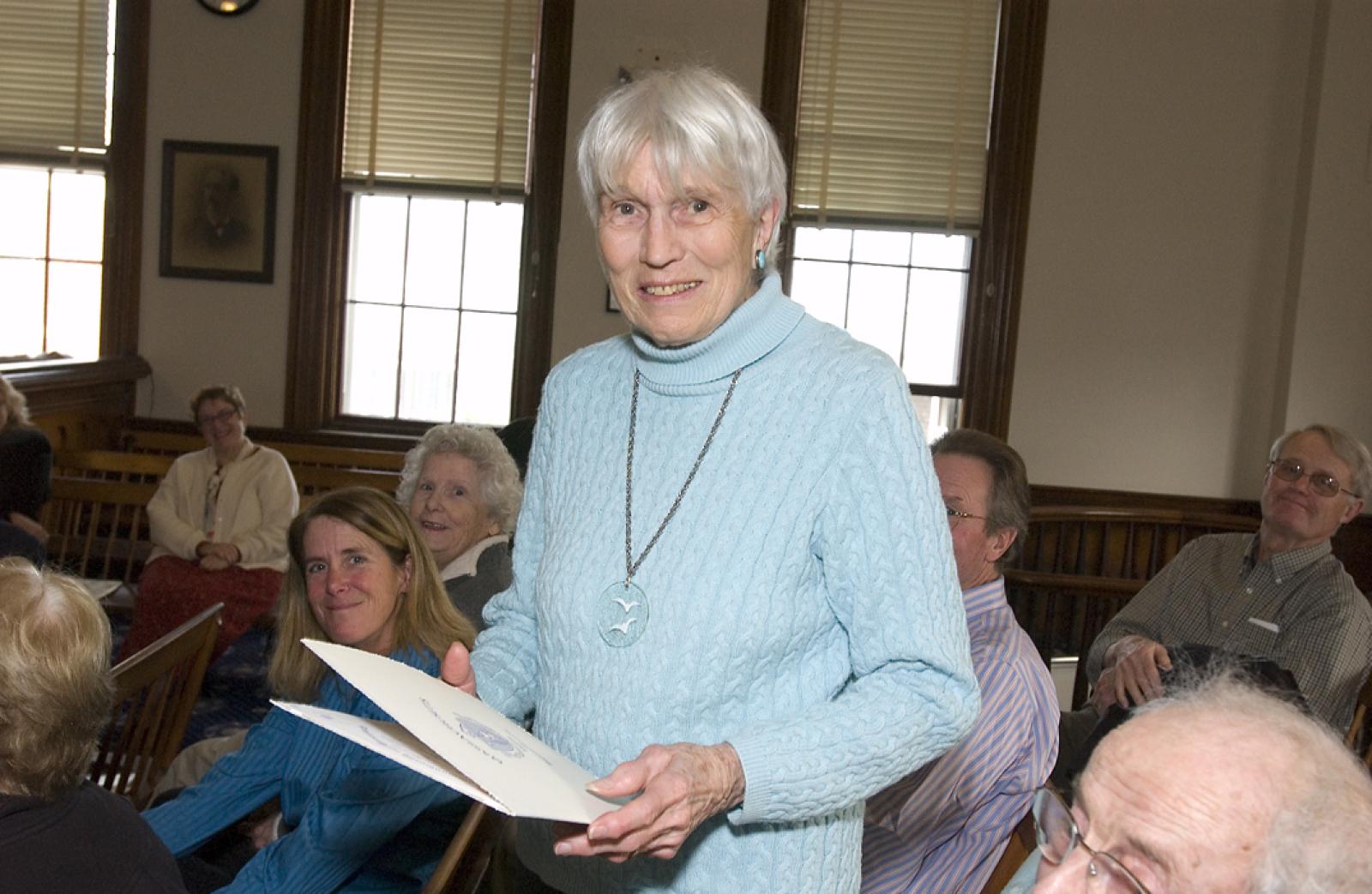Last Thursday, past and current members of the Martha’s Vineyard Center for Dispute Resolution celebrated their 25th anniversary in the one place they have been so effective at keeping people out of for years: the Edgartown district court.
Formerly the Martha’s Vineyard Mediation Program, the organization trains mediators who try to facilitate peaceful resolutions between opposing parties in a confidential, constructive and empathetic fashion, before either party resorts to formal litigation, which can often turn recriminatory and divisive.
The process also helps to decongest the court by tackling disputes that could be better dealt with informally.
As former program president John Washbrook explained, just getting rival parties to be in the same room can often have enormous psychological effects.
“At the beginning of a dispute people don’t even want to communicate at all. Once they’re willing to come together and discuss it in mediation, well then, you’re already on first base,” he said. “Oftentimes it’s a surprise to the two parties because they didn’t realize where that other person was coming from.”
At the celebration last Thursday, Cape and Islands Rep. Timothy Madden formally recognized the organization with a resolution adopted by the Massachusetts House of Representatives and State Senate congratulating the center on its silver anniversary, as well as for the work it has done in the community. He also read aloud three individual citations for the late Hon. Herbert Tucker Jr. and former clerk magistrate Tom Teller, who founded the program, as well as longtime mediator Margie Haven, who vowed to press on for 25 more successful years.
Accepting the award on behalf of her late husband, whose stately portrait watched over the proceedings, a visibly moved Mary Tucker expressed her gratitude and optimism for the future of the program,
“It started with four or five people so to see this many people here today is very impressive, and the fact that it will continue in the way that it will is very meaningful to me,” she said.
Mr. Madden, who lives on Nantucket, also recognized the sensitivity of settling disputes on a close-knit Island, adding: “My wife is the mediator of my family’s island and she could tell you.”
The program was started in 1984 by the late Mr. Tucker and Mr. Teller, each of whom had been independently interested in the idea of mediation for years.
For Mr. Tucker, who was a former associate judge in Dorchester, mediation was nothing new. He had developed the Urban Mediation Project in Boston, a highly successful program that was the first of its kind in the commonwealth. It became a model to others across the state.
“It was one of the most successful mediation programs in the country,” Mr. Teller said.
But when federal funding dried up, the program followed suit, and when Mr. Tucker was appointed the presiding court judge of the Edgartown district court in 1979, he was determined to bring his experience in mediation to the Island.
Meanwhile, Tom Teller had become interested in the idea through an educational conference for clerks he had attended, which had featured a presentation on mediation. With his Martha’s Vineyard office short-staffed, Mr. Teller’s secretary Shelley Devine would often perform double duty, typing up letters in the courthouse for Mr. Tucker as well. One day when she was having trouble deciphering one of Mr. Tucker’s cryptic handwritten letters, she brought it to Mr. Teller for a second opinion. When Mr. Teller saw that the letter was about Mr. Tucker’s interest in mediation, the program was effectively born.
“Who ever thought that 25 years later the program would still be going strong?” said Mr. Teller.
Like most nonprofits the Center for Dispute Resolution faces constant funding pressures as well as the need to bring in new volunteers to serve as mediators. At the event on Thursday current president Deborah Medders implored people to consider joining the organization,
“We’re going to have a training program in February or March and we would love to have more mediators,” she said.
Mr. Washbrook thinks the investment in time is well worth it.
“When you finish a mediation it’s an exhilarating high to know that you’ve done some good, that you’ve helped bring people together and resolved a misunderstanding or dispute and I really mean that,” he said. “Most all mediators share the same enthusiasm and passion.”
On Thursday Ms. Medders offered a vignette to the audience to illustrate the therapeutic powers of mediation:
“We had these two people who had been friends for a long time and certain things had occurred that they hadn’t understood and that were underground. Mediation just opened up the world for them. Their friendship blossomed and it was just a beautiful thing to see.”






Comments
Comment policy »